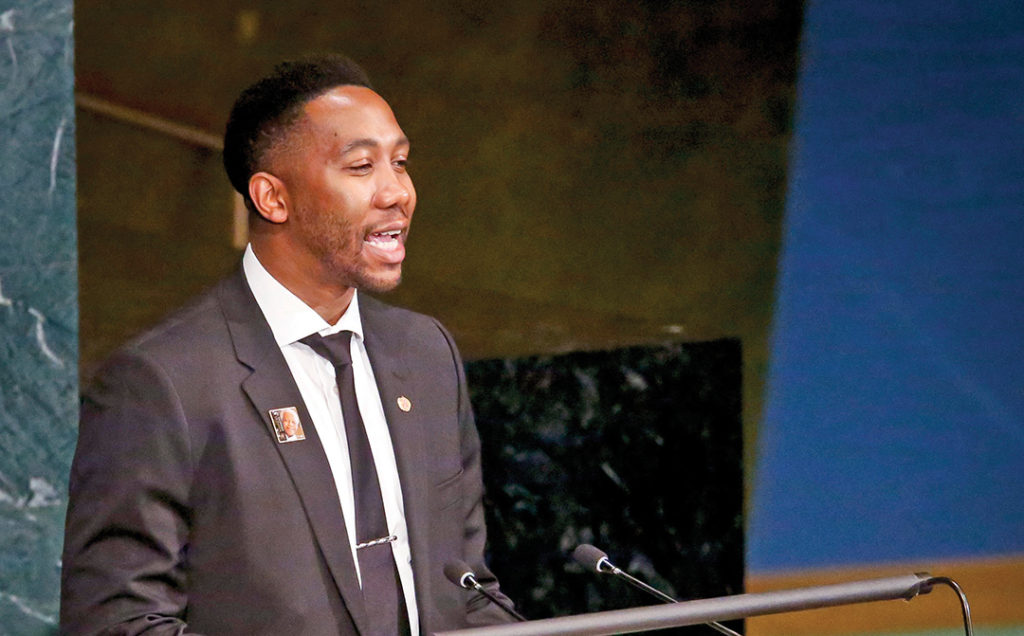VOICE OF AMERICA
Photo by THE ASSOCIATED PRESS
An entire generation has been born since Nelson Mandela’s 1990 release from a South African prison, where he spent almost three decades for his anti-apartheid activism.
Ndaba Mandela wants to make sure those young people understand his grandfather’s role — and his values — in fighting for racial equality and trying to heal divisions in post-apartheid South Africa.
“That is the very reason why I wrote this book,” Ndaba Mandela says of Going to the Mountain. His goal with the memoir is to show the elder Mandela “not as this huge, great icon” but as a supportive grandfather figure. Mandela died in 2013 at age 95.
The 35-year-old describes his grandfather as courageous and fearless in his quest to end South Africa’s white minority rule, but he says that commitment came at great personal cost.
“That is a man who went against the system, who sacrificed his family, sacrificed his own life for the greater good of his people,” Ndaba said, alluding to his grandfather’s 27 years in detention.
In 1989, 7-year-old Ndaba met his grandfather at Victor Verster Prison, from which the leader was freed several months later. The boy was 11 when he moved in with Mandela and his staff in a house in Johannesburg’s Houghton suburb. He would spend much of the next two decades there — being cared for, and then caring for, his grandfather.
Ndaba’s mother, Zondi, was already gravely ill when he learned that she had HIV/AIDS. She died of its complications in 2003, though a family press release attributed her death to pneumonia.
Ndaba writes that Mandela tried to address the country’s AIDS epidemic in 1991 by promoting safe-sex education, but he backed off when accusations that he was “encouraging promiscuity” threatened his political prospects. When Ndaba’s father succumbed to the same disease in early 2005, Mandela called a press conference “to announce that my son has died of AIDS.”
“It’s impossible to overstate what this meant to the millions of people who live in fear of seeking help or disclosing their HIV status and to the millions more people who loved them,” writes Ndaba Mandela, now an ambassador for UNAIDS, the United Nations effort to curb the disease.

